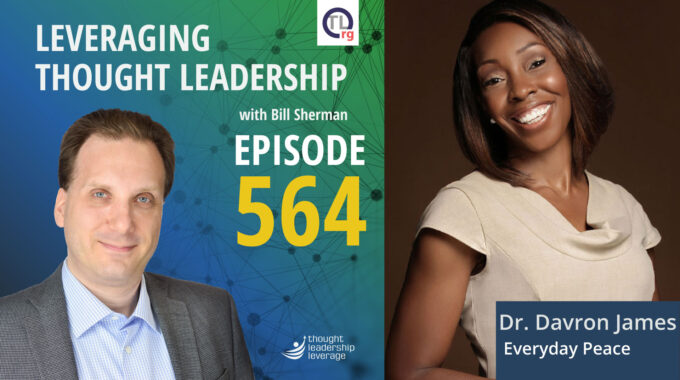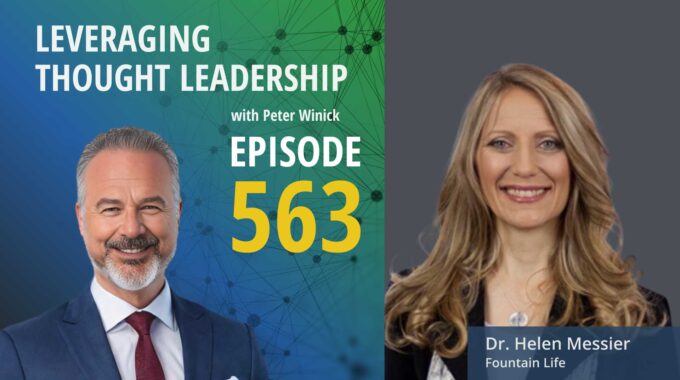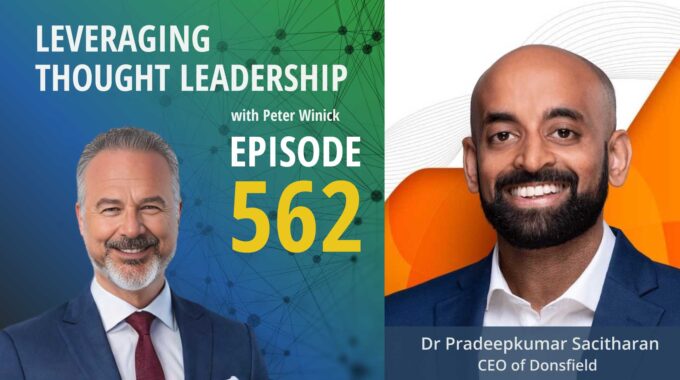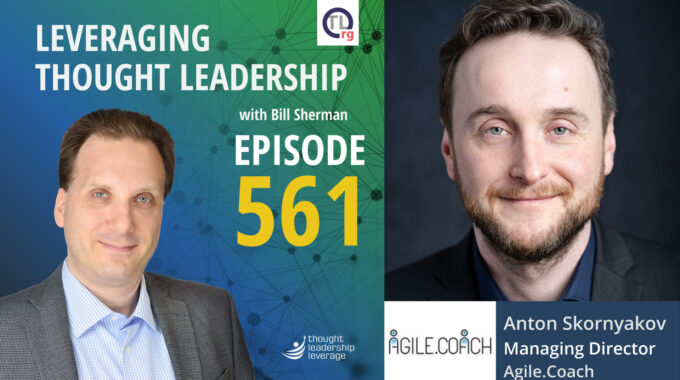Embracing Self-Awareness for Personal Growth and Peace A conversation with Dr. Davron James about her…
Breaking Away From the Preconceived | Zale Mednick
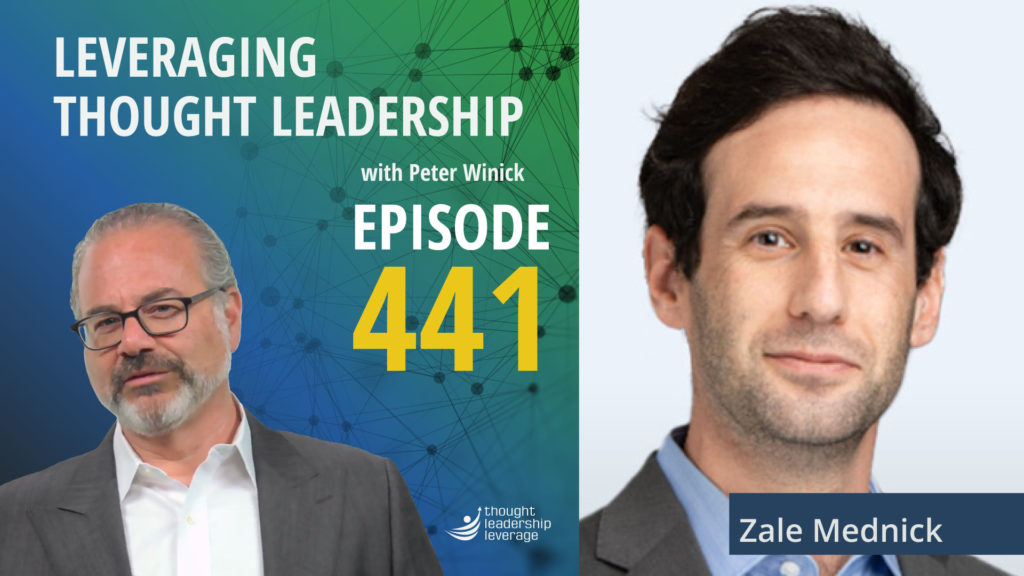
Moving into new ventures and exploring modalities.
An interview with Zale Mednick about becoming a podcaster and developing a book from the themes in the podcast.
We all have preconceived views of what life should be but don’t have to feel like we are just going through the motions because they are scripted for us. At some point the steps we take should be a conscious choice and not simply the choice we believe needs to be the next one on that tradition path.
To examine how we can challenge traditional societal expectations I’ve invited Zale Mednick to join me. Zale is an Ophthalmologist by traditional labels, but is also the host of the award winning podcast Preconceived and is also the editor of Preconceived: Challenging the preconceptions in our lives.
Zale shares how his typical journey to become a doctor took a turn when he stopped to consider what other interests and passions he’d like to pursue beyond his profession. He landed on the idea of a podcast, which have a low barrier of entry. The theme would be about the preconceived notions we have, which suited the juncture he was at in his own life.
While a podcast is easy to start getting guests and sticking it out is often a challenge. Many podcasters stop by episode 25 having lost faith in their idea. Zale talks about having his Mother as his first guest, to discuss her move from Oxford trained lawyer to stay at home mother of four and back into the workplace some 15 years later. Reaching out to friends and family to be guests allowed him to get some episodes under his belt, build a reputation, and start getting guests that he didn’t personally know.
After having more than 100 guests on the show Zale thought the idea would work well as a book and began to reach out to former guests asking them to write essays, thought pieces, or short stories about the preconceived ideas they discussed in the podcast. 54 of them agreed to join him and can be found in his book Preconceived: Challenging the preconceptions in our lives, which Zale edited together and contributed chapters.
If you are tired of going through the motions and want to jump into something new this is an insightful episode that might spark your passion and put you down an unexpected path!
Three Key Takeaways:
- Podcasts can take a long time to see results. You need to commit for longer than logic might dictate you should.
- Repurposing and resharing content is a time saving method to reach new audiences and grow your brand.
- If you are looking for a change don’t let fear hold you back. Find a low risk way to make the pivot.
If you need a strategy to bring your thought leadership to market, Thought Leadership Leverage can assist you! Contact us for more information. In addition, we can help you implement marketing, research, and sales. Let us help you so you can devote yourself to what you do best.
Transcript
Peter Winick And welcome, welcome, welcome. This is Peter Winick. I’m the founder and CEO at Thought Leadership Leverage. And you’re joining us on the podcast today, which is Leveraging Thought Leadership. So today, my guess this is going to be interesting is Zale Mednick. So, if you go to his LinkedIn, it says ophthalmologist and podcaster and author, three words that usually don’t appear in the same bio. So, Zale is the producer and the host of the award winning podcast Preconceived and as an extension of the podcast, he recently published his book Preconceived Challenging the Preconceptions in Our Lives. He’s also worked as one of the doctors on the CBS hit television show Survivor for four years. Because I guess you need glasses in the wilderness or something. You need a place to go. So let me just jump in.
Peter Winick Welcome, Zale. Thanks. Thanks for hopping on with us today.
Zale Mednick Thank you. Thank you so much. I’m absolutely delighted and honored to be here and happy to tell you that the benefits of glasses in the wilderness if that if that comes up.
Peter Winick Exactly. So let me ask you this. So here you are. You’re a busy guy. You’re a doctor, you’re an ophthalmologist. And all of a sudden you decide, like, there’s something that’s interesting to you that you want to explore. And you don’t just read an article, have a cup of tea, and then move about your life. So what, what, what’s behind Preconceived? Both as a podcast, and as a book. What started this journey?
Zale Mednick Yes. So it was I spent so much time in school, I was in that I mean, a lot of people do. But I was in school for about three years of undergrad, four years of med school, and then five years of residency and a couple of years of fellowship. And that obviously consumes your life. I had some adventures in there that I was able to squeeze in with Survivor, as you mentioned, and, you know, other stuff in life. And as I was coming to a juncture in my own life, as I was about to finish my fellowship, the end of my ophthalmology training, I thought to myself, I like medicine, obviously, otherwise I wouldn’t have invested that time in it, but I don’t want it to be consuming of my whole life. I’ve got other passions. I used to do public speaking and I was an actor and I just like doing things that are creative. Medicine can be creative, but it’s a different type of brain, a different aspect of my life. So, as I was at a juncture in my own life thinking, okay, well, how am I not just going to fall into that 9 to 5 doctor’s life? How can I do something different? So I sat down with pen and paper like that on my iPhone or whatever, and I thought, What are some random dreams or things that I actually want to do? And I had a long list of things that I wanted to do screenwriting for a long time, and I thought that might be a big thing to do. So I eventually landed on the idea of a podcast, something that’s easy to start. I can do it myself. There aren’t too many barriers to it. And then in terms of the theme, Preconceived, really fit with the juncture I was at in my own life. Because the preconceived notion in a sense is that you have this particular path in life. You grow up, you have a typical childhood with an education, you have a monogamous relationship, you have a stable career, and there’s this path. And as I was debating my own path, preconceived felt like a natural extension of where I was at.
Peter Winick And this is really an extension of so the fact that you’re a doctor, you can fill that in with pilot engineer or accountant, lawyer or whatever. You’re a lifelong learner that’s really, really curious and said, this is just interesting. Let me explore. Right. But you did it in more of a three-dimensional way. Right. So there’s lots of ways. If someone was curious about a topic, let me go read a bunch of books on, you know, biographies on Churchill, if I’m curious about Churchill or whatever. But podcast being conversational, podcast being also not an activity that one does by oneself. Right? You’ve got other people that involved having interesting conversations. So, there isn’t really a business model here. But how did that start? So how did you how did you pitch the first person to say, Hey, I’m doing this podcast with no audience and I haven’t even started it yet, but I’d like you to be a guest.
Zale Mednick Great question, because it was tough. So, I started with. Yes, I mean, I didn’t have a business model in the first episode of the podcast is not surprisingly, with somebody I knew, my mom, and it’s called content. And it’s all about this notion that you don’t always have to have a plan. You don’t always have to know what you’re doing. And my mom, she was an Oxford trained lawyer and she had a lot of academics in her background. And then she eventually decided to stay home for 15 years raising four kids, me being the youngest. And then we talked about her journey part, of course, on the favorite topic. No, no, they don’t. They don’t they don’t have favorites. So, they say. But that episode is all about how she decided 15 years later, how do I jump back into the workplace? How do I jump back into life, not just as a mother? And that was really a good starting off point because that’s how I was experiencing the podcast. So, I started off by interviewing people that I kind of knew, some friends, maybe I interviewed a doctor who was a friend about abortion. And then once I had a few more episodes and I felt I got lucky with a few guests who said, Sure, I’ll, I’ll take a chance. It’s not the biggest deal to spend 45 minutes doing a podcast and then obviously 170 episodes later, it’s been a lot easier as I’ve accumulated a better sense of the.
Peter Winick Wait, wait, stay there because you fast forward. So, I think what happens is and the last data I saw was like something like 91% of podcasts and my data might not be as accurate as it was. I haven’t put out a new episode of 90 Days. Right? So, one of the things that’s interesting is, okay, the first of all was your mother, 171 wasn’t an 11th cousin. We didn’t just keep it in the family. And I think part of the interesting thing, and I’ve learned this myself along the way with blogging, podcasts and whatever, is that, that, that grit that it takes to commit to far longer than it seems is logical based on the outcomes and benefits that you’re getting. Because I’m sure a couple of stops along the way at 50 or like, you know, in 70. But what kept you going? Like, what was the was it just the intrinsic stuff or what kept you going from zero to episode 1 to 171?
Zale Mednick I think you phrased that really well. Yeah, but it’s definitely not my 11th cousin, thank God. Or else I think I would have quit by now. But it later. Cousins right. I did that. I did read an article earlier on that said by about episode 25, that’s when a lot of podcasters stop doing it because they lose faith. I think what kept me going was one, I like doing what I’m doing. I like speaking with interesting people. I also really enjoy having a project and it’s something I’m building, even though I don’t have a business model. I mean, I have more of a business model now, but it was kind of like a business to me. I’ve never had that before. So starting something from scratch, watching it grow and I think watching the growth has really helped me in addition to enjoying what I’m doing.
Peter Winick So how do you defining growth, though, right? So growth could be because this is where it gets weird, where you put a lot of work into a podcast or blog or whatever it is that you’re doing. And then for a long time it’s crickets. Ooh, somebody commented, Oh, wait, that was actually a Russian bot. Like, how were you defining growth? Is it the traditional metrics of number of downloads, number of listeners, number whatever, or is it the interaction and conversations it’s starting with comments and stuff, or because that’s a hard thing to lock and load up.
Zale Mednick Totally. And you’re kind of reading my mind and over the past few years is that I’m as I’ve embarked. Done this, this podcast and then the book because it is really tough. I mean, I do have statistics so I can see that the downloads are increasing. And it’s very rare that I do hear comments about a particular episode and then are few and far between. I just got a comment, for example, a couple of weeks ago and it said, thank you so much for doing that episode on relationship OCD, which is a type of OCD about the anxiety of love. It really, really helped me. And I’m going to take some of the advice that your listener gave, and that meant a lot to me, but those comments are few and far between, and those comments do propel me a little bit. But ultimately, I think if I was seeing that my downloads were pretty stagnant or not growing, that would be pretty tough. And I’ve had moments like that for sure, and I evaluate why. But ultimately there’s also there is also a pride factor. I think the content we put out is is solid. I think it’s I think it’s good and I’m proud of it. So that helps me keep that helps keep me going. But you’re right, it is challenging and I wish I had a more concrete answer for you.
Peter Winick I think there’s at least for me, there’s been a combination of the selfish and selfishness, so selfish in the sense of every time I do one of these and we’re on episode, I don’t even know, 450, whatever it is, I look forward to the conversation because I’m talking to somebody interesting. I love talking to people, whatever. And kind of the only difference is we’re hitting record and maybe making sure I hit on a couple of points. That’s the selfish piece. The selflessness might as well share it with the winners. Maybe somebody else cares about it. Now, you know, four and a half years later, it appears that some do, right? Like, you know, Oprah and Tim Ferriss have nothing to worry about, but it’s got its own thing. And I think that’s what sort of feeds you a little bit, right?
Zale Mednick Totally. Do you find did you find it tough, though, when you were developing developing an audience to say, even though it’s out there, you’re not getting so much feedback? You know, you might put an episode where they really proud of, but you don’t really hear about it.
Peter Winick One thing that drove me is I have a very good friend who years ago when I started blogging and I am a terrible writer at best and there isn’t a lot of at best, but this is like 15 years ago, 12 years ago, I went to a friend that had at that point three or four very successful blogs. I said, Give me advice. And he says, Well, you know, you’re you’re a CEO, you’re impatient. Don’t commit to writing one, commit to writing 100, because you’re going to look at the data and you will convince yourself at every step along the way that there’s no reason to continue doing this and trust me, do that. And he was 100% right. So when I started the podcast, I compromised and said, I’ll, I’ll commit to 50. So I knew straight up it was a commitment to 50 episodes over we were going to do for month one a week, whatever that is. So almost a year and then watch how it goes. We were doing two a week, so half a year, whatever. So I tried not to get nuts checking out the data, checking out this and just focused on see what happens. It’s, you know, it doesn’t take all that much time. So I think, you know. The business models are very different for us. It wasn’t about directly monetizing the podcast, however, right? It’s about meeting interesting people. It’s about elevating the brand. It’s about sharing ideas with others in a way that makes sense.
Peter Winick If you’re enjoying this episode of Leveraging Thought Leadership, please make sure to subscribe. If you’d like to help spread the word about our podcast, please leave us a review and share it with your friends. We’re available on Apple Podcasts and on all major listening apps as well as at ThoughtLeadershipLeverage.com forward slash podcasts.
Peter Winick I want to I want to pivot in a little bit to the time that we have left, too. So you’ve got the podcast and then somehow the podcast magically turns into a book, right? So preconceived, challenging the preconceptions in our lives. So give me the, you know, and on the cover. It’s interesting. It doesn’t say that you’re the author. It says Edited By, which is something you don’t typically see on the book. So I’m assuming the book, because I’ve only just started, is really just a compilation of the podcast, right?
Zale Mednick It’s a compilation of their original pieces. So some people, when they hear about it, they say, Oh, so you just took some transcripts from the podcast and you put them together, which I think could be a cool book. But essentially I thought to myself in this kind of was just spawned by I like, I like projects and I this kind of, I like reading anthologies. I’ve read some and I thought to myself, I’ve interviewed a lot of really interesting people, why not try and put some of their thoughts down on paper? I think it would make a cool book. And essentially I reached out to probably about 100 former guests and there’s, I think 54 in there short essays, short pieces, short stories about their lives, about 500 to 1000 words each. And the question was talk in any way about the greatest preconception related to the topic we were talking about?
Peter Winick Got it.
Zale Mednick That’s what it is. And they had a lot of guests. Some said no, obviously, because, I mean, it’s a it’s a commitment to do. Sure. For some guests.
Peter Winick So I think this is this is really interesting in that it goes to how you define thought leadership or what your role as a thought leader is. So in this case, this isn’t necessarily Zale’s view of the world on Preconceived. And see this, you’re bringing together 54 people’s perspective, which is really, really interesting. That’s number one. Number two, there’s an element of repurposing, right? So even though it’s a slightly different nuance and then what you might have covered on the podcast thematically, it’s the same, right? You had a conversation with them for a half hour on Preconceived. I would argue that probably most of the essays in there touched on some of the things you already talked about, and most people think that you constantly have to create new to new. And I’m always like, no, like there’s a time and place to create new thought leadership. But then in order to expand its reach an impact, you have to spend equal amounts of energy repurposing it into different modalities to get it to different people. Because I would argue that you have people that only listen to your podcast, that won’t read a book, and then you have people that don’t even have any idea. They have a podcast that have read the book, and then there’s the overlap of both, right? And the more modalities you’re in, the more audiences you reach.
Zale Mednick Totally. And I have a couple of comments there. One for the repurposing, I used to be hesitant to repost my podcast episodes, and then I thought to myself, Why am I so hesitant to do that? I’ll write repost. So I feel authentic in brackets, but there are episodes that I did I think are really good that I did two years ago when I had less than half of my listening base. So I think repurposing is important in terms of thought leadership. I think it’s important that it says I mean, first of all, it is edited by me. It’s not written by me. I wrote a couple of chapters in there, but I don’t I don’t consider myself a thought leader. And I think that’s fine. I think I think the words and obviously your whole, you know a lot more about thought leadership than I do. But when I do the podcast, I think there is totally a role for podcasts where people are expressing their own opinions. But when I decided to do my podcast, I thought, I think there are maybe sometimes too many people who are expressing their opinions. And I try not to give my opinion on my podcast too much because I try to be objective in that we can seem to try to be open minded and I’m not an expert on a lot of these topics. So this was very much so, as you say, collecting other thought leaders in their respective fields.
Peter Winick But that but that there is value in that. Right. So you went through all this effort because you had this thing in your head about what is preconceived and talk your mind, like whatever. So now like, you know, X years later you’re kind of sort of an expert on preconceived or no more about the topic than most. Now, your day job is still you’re an ophthalmologist, right? You know, you’re not like a world renowned academic. But I would argue, you know, far more than the average person on this issue and have a perspective and have a point of view. And you could draw from your experiences and conversations because I’ve heard 70 conversation that’s you know, that’s not insignificant.
Zale Mednick Yeah, I think I think you’re probably you’re probably right. I probably could give myself a little more credit than that in that domain. But in and I think I’ve definitely become more of a I think I know how to you’re right. I guess I’m an expert on preconceived to an extent and. I’ve become more open minded for sure in talking with people and just in life in the way I view the world. And one of the things I say to people when they say, has it affected the way you live your life? I say in some domains, yes, some episodes, but it’s a lot easier for it to affect the way I view the world. It’s a lot tougher to then implement some of those preconceptions that I’m aware of into the way I live.
Peter Winick So let me ask you this. There’s. At least the world, according to me, which may or may not be correct. Probably not. Totally correct. You know, sort of the thought leaders need to stay in their lane. Right. If I’m an expert on resiliency, I need to stay on resiliency. There are some exceptions to that. Dan Pink, Malcolm Gladwell said, go to whatever where they’re speaking on different issues, very different issues, and they go really, really deep and attempting to research and all that other stuff. Do you see yourself staying in the pre-conceived lane or might you wake up tomorrow and say, You know what I’m really curious about? Like, why do people make silly decisions? Or is there another thing or have you not thought about that?
Zale Mednick I haven’t thought about it. Well, no, I have thought about it. I think that I see myself staying in my lane, but it doesn’t necessarily need to be preconceived when I think where I would feel uncomfortable is stepping out and offering opinions on things that I don’t feel objectively qualified to be offering expert opinions on. So right now I don’t really feel like I’m offering so many opinions. I’m happy to offer opinions, obviously during my podcast and kind of ask the interviewer to ask the questions. But I’m happy to explore whatever life has to offer to me. But I would never try to present myself as somebody who’s an expert in something I’m not. And I do think in society right now, there is a little bit too much of that where there’s so many platforms that echo chambers and it’s very easy for people.
Peter Winick Like that is more, hey, I’m curious about this. If you’re curious, come out, come along on this journey with me. I don’t know more than you do, but you know their findings.
Zale Mednick Exactly. And some of my some of my worst episodes that I view as worse, I think, are ones that I maybe even come in a little too prepared for, because I think I’m best when I actually come in more curious and a little bit naive, like the listener.
Peter Winick Yeah. No, I like that. I like that naivete because the listener wants, you know, it’s probably the things that they’re thinking they would ask versus these very scripted, deliberate, constrained questions. So interesting. All right. So as we start to land the plane, any thoughts to other ophthalmologists or anybody in any profession out there that have an itch to scratch as it relates to thought, leadership or something they’re curious about or something, want to go deeper?
Zale Mednick I think that ironically, I just did an episode yesterday about career changes and so a lot of the themes in that fit in with this. But I think that anybody who’s looking to pivot in life or not even pivot, but you don’t have to have the prescribed route that life tells you to take. And that doesn’t mean for me that after I finished my training, I said, okay, I’m not going to do ophthalmology anymore, you know? And for some people, they might say, you have to be a doctor or a lawyer. This isn’t for me. And that’s fine. It’s also fine to be creative in the way you. Figure out how to do multiple things and how to have multiple interests. I’m still an ophthalmologist, but I don’t practice five days a week. I practice four days a week, and I do this for that change one day. Sure. And I would say to people, don’t have that fear of jumping in or jump in, afraid that’s okay. It’s okay to be afraid. I didn’t know what I was doing, but the stakes were low. I’m happy with what I’ve done and I’m excited for the next adventure. And that’s what makes life exciting. And I think it’s important to nurture lots of your interests and to be creative with the way you live your life professionally and personally.
Peter Winick Awesome. Well, thank you for sharing your journey and your experience with us today. This has been awesome, and I appreciate your work and appreciate the candor. Good stuff. Thank you so, so much for having me. I’m really grateful that you took the time to have me here. Thank you. To learn more about Thought Leadership Leverage, please visit our website at ThoughtLeadershipLeverage.com to reach me directly. Feel free to email me at Peter at ThoughtLeadershipLeverage.com and please subscribe to Leveraging Thought Leadership on iTunes or your favorite podcast app to get your weekly episode automatically.



